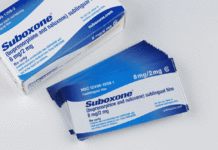An addiction treatment center located in Morristown, Tennessee recently celebrated its first anniversary. During its first operational year, the New Hope Recovery Addiction Services offered residential addiction treatment services to more than 130 people in Hamblen County.
The center was able to assist so many members of the local community due to a significant expansion; the number of beds available for the center’s inpatient program recently increased from 34 to 66. The new beds have also helped reduce the average wait time for inpatient addiction treatment services in the East Tennessee region.
The New Hope Recovery Addiction Services also offers outpatient treatment programs to both adults and adolescents who are struggling with substance use disorders, mental illnesses or co-occurring disorders.
The same location features a youth emergency shelter, which assists children and teens 24/7. The shelter welcomes youths who need immediate care and temporary housing.
The addiction treatment center is a part of the Helen Ross McNabb Center, a not-for-profit behavioral healthcare service provider that has been serving children and adults in the East Tennessee region since 1948. Since then, the Helen Ross McNabb Center has provided healthcare services to a total of 25 counties in the East Tennessee area.
The center’s residential program admits patients for a minimum of 30 days. However, people are able to remain in addiction treatment for three months. In addition, the staff members of the center offer classes, which cover subjects such as sobriety and coping mechanisms, to the individuals who are receiving treatment.
According to representatives of the Helen Ross McNabb Center, the facility has a success rate of approximately 95 percent.
They added that they have noticed a great demand from the local community members ever since the center launched its addiction treatment programs.
Four months ago, a $15,000 grant was provided to the Helen Ross McNabb Foundation from the Trinity Health Foundation of East Tennessee.
The grant strived to allow the foundation to have the opportunity to research the implementation or integration of behavioral health medical professionals into emergency rooms throughout the region, due to the local need.
There were more than 15,000 nonfatal outpatient emergency room visits associated with drug overdoses in the state in 2016, according to the latest data provided by the Tennessee Department of Health.
Last year, the department reported that more fatal overdoses had occurred across the state than ever before — a total of 1,776 Tennessee residents died of drug overdoses in 2017. The majority of the fatalities (1,268) were attributed to opioids.
The representatives of the Helen Ross McNabb Center stated that they are aware that a lot more efforts and initiatives are needed in order to combat the effects of the opioid epidemic in the area, but they believe that progress has been made.
They added that will continue to work on expanding the resources that are available to the residents of the state who have been impacted by substance use disorders directly or indirectly.

















